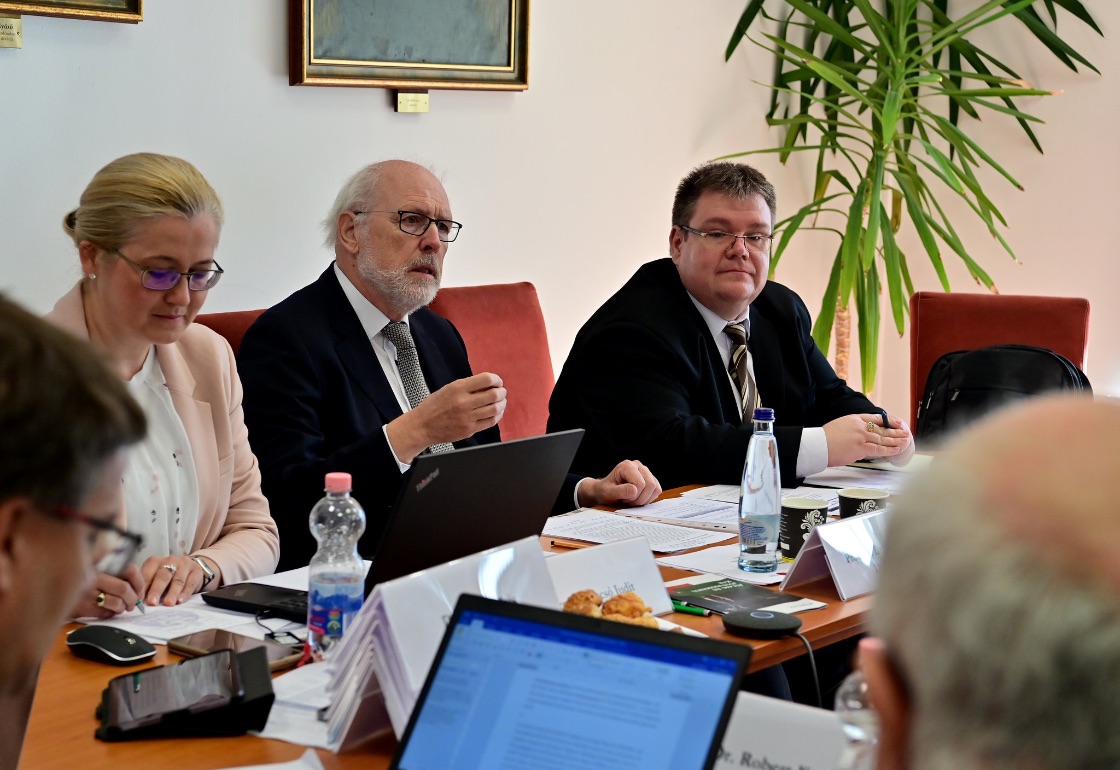LINKS EXPLORED AT INTERNATIONAL COMPLIANCE CONFERENCE
Internationally prominent representatives of the legal profession discussed the issue of corporate compliance at an international conference organised jointly by the University of Heidelberg and the University of Miskolc in the framework of the Humboldt Institute Partnership Project.
This is the third time that an international conference has been held at UM's Faculty of Law. Prof. Judit Jacsó (Deputy Dean) emphasized that it is a great pleasure for the faculty that it was awarded the Humboldt Foundation's Institutional Partnership Project in cooperation with the University of Heidelberg two years ago. She also said that there had been a very large turnout, with more than 150 people registering for the event.

Dr. Robert Kert, Professor at the Vienna University of Economics and Business, pointed out that in most countries in the EU legal persons and companies already have criminal liability. And businesses are trying to set up compliance programmes, and the question is how these compliance programmes affect the sanctioning and criminal liability of businesses.
"We have new developments concerning sanctions in enterprises. At the moment we have a lot of different sanctions, not only in criminal law but also in administrative law and civil law. And it is not clear how these sanctions can be put together and in what relations they stand." added Dr. Kert.

Dr. Gerhard Dannecker, Professor at the University of Heidelberg and Honorary Doctor of UM, pointed out that the EU had adopted the concept of compliance from the United States and that it was the duty of the Member States to introduce it. The problems for Germany and Hungary are largely the same, because the Hungarian legal system is very close to the German system.

"We are a little bit faster but let me say maybe we have one year more experience than the Hungarians, but that’s not much. And therefore I think it is very good that we see the problems in our country. It’s not only a question of law. It is a question of economics, it is a question of psychology, of ethics, etc." said Dr. Dannecker.



